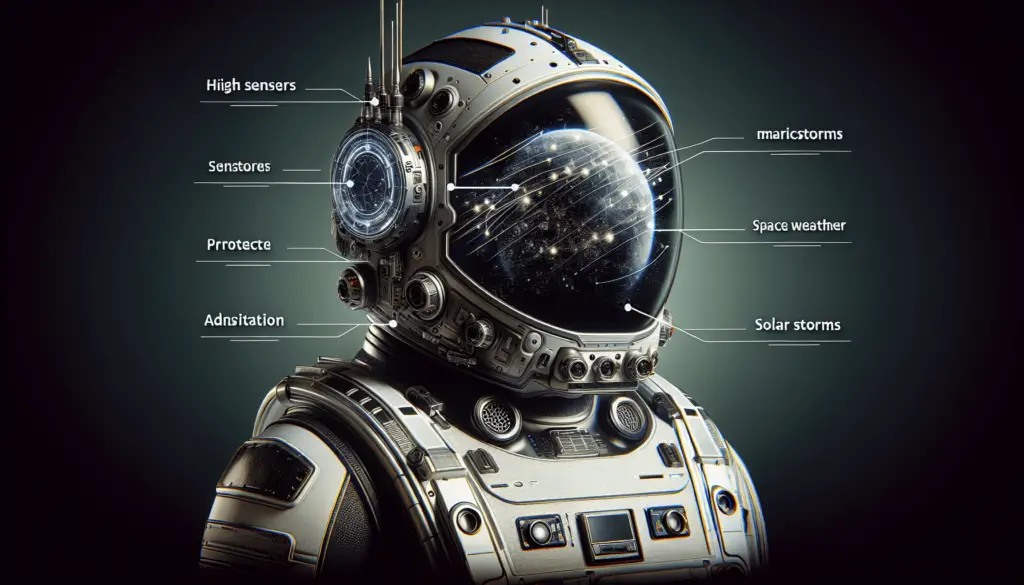Is Space Weather a Real Concern for Preppers?
When we think of prepping, often the first things that come to mind are natural disasters such as hurricanes, earthquakes, or pandemics. But have you ever considered the impact of space weather and solar storms on our modern way of life?
While it may not be as well-known as traditional prepping scenarios, space weather can have a significant impact on our technology-driven society. From disrupting GPS signals to damaging power grids, being prepared for space weather events is just as important as preparing for any other disaster. Let’s delve into the world of space weather and solar storms to better understand how they can affect us and how we can prepare.

Understanding Space Weather and Solar Storms
Space weather refers to the environmental conditions in space, such as solar wind, radiation, magnetic fields, and plasma, that can have an impact on Earth and its inhabitants. Solar storms, or solar flares and coronal mass ejections (CMEs), are powerful bursts of energy and particles released from the sun that can travel towards Earth and interact with our planet’s magnetic field.
These solar events can cause disturbances in our atmosphere and magnetic field, leading to a range of potential problems here on Earth. The most notable effects of severe space weather events include disruptions to power grids, satellite communication systems, GPS signals, and even increased radiation exposure for astronauts and airline crews.
Effects of Space Weather on Earth
Space weather events have the potential to cause widespread disruption and damage to our technology-dependent society. Here are some of the key impacts of space weather on Earth:
-
Power Grids: Severe geomagnetic storms caused by solar activity can induce currents in power lines, transformers, and other electrical infrastructure, leading to widespread blackouts and damage to the power grid.
-
Satellite Communication: Solar storms can disrupt satellite communication systems, affecting everything from GPS signals to weather forecasting and air travel.
-
Astronaut and Airline Crew Health: Increased radiation exposure during space weather events poses a risk to astronauts in space and airline crews flying at high altitudes, potentially leading to long-term health effects.
-
Radio Communications: High-frequency radio communications can be disrupted during geomagnetic storms, affecting emergency services, aviation, and maritime operations.
Preparing for Space Weather Events
Now that we understand the potential impact of space weather and solar storms, how can we as preppers prepare for these less conventional but equally important threats? Here are some tips for advanced prepping to protect yourself and your loved ones from the effects of space weather:
Emergency Supplies and Food Storage
As with any disaster scenario, having a well-stocked emergency supply kit and ample food storage is critical for weathering the effects of a space weather event. Make sure you have at least a two-week supply of food, water, and essential supplies to sustain you during a power outage or other disruptions caused by space weather.
Backup Power Sources
Given the potential for widespread power outages during severe space weather events, having backup power sources like solar panels, generators, or portable power banks can help you stay connected and powered up when the grid goes down. Make sure to test your backup power sources regularly and keep them in good working condition.
Communication Plan
During a space weather event, communication systems may be disrupted, making it difficult to stay in touch with loved ones or receive important updates. Develop a communication plan with your family members or prepping group to establish alternative means of communication, such as two-way radios, satellite phones, or designated meeting points.
Faraday Cages
Protecting your electronic devices from electromagnetic interference during a solar storm can help prevent damage to sensitive equipment like smartphones, laptops, and radios. Consider building or purchasing a Faraday cage to shield your devices from harmful electromagnetic pulses and keep them operational during a space weather event.
Geomagnetic Storm Alerts
Stay informed about space weather conditions and potential geomagnetic storms by monitoring alerts from official sources like the Space Weather Prediction Center (SWPC) or the National Oceanic and Atmospheric Administration (NOAA). Sign up for alerts and notifications to receive real-time updates on solar activity and geomagnetic disturbances that could impact Earth.
Emergency Evacuation Plan
In the event of a severe space weather event that poses a risk to your safety or well-being, having an emergency evacuation plan in place can help you quickly and efficiently move to a safer location. Identify evacuation routes, emergency shelters, and designated meeting points in advance to ensure a smooth evacuation process when needed.

Conclusion
As preppers, it’s essential to broaden our preparedness mindset beyond traditional disaster scenarios and consider the potential impact of space weather and solar storms on our modern way of life. By understanding the effects of severe space weather events, preparing with emergency supplies, backup power sources, and communication plans, and staying informed about geomagnetic storm alerts, we can mitigate the risks and protect ourselves from the unpredictable forces of nature in space.
Advanced prepping for space weather and solar storms may require additional planning and resources, but the peace of mind and resilience it provides in the face of these lesser-known threats make it a worthwhile investment in our overall readiness and preparedness. So take the time to prepare for space weather events, and know that you’re taking a proactive step towards safeguarding yourself and your loved ones in an increasingly uncertain world.
